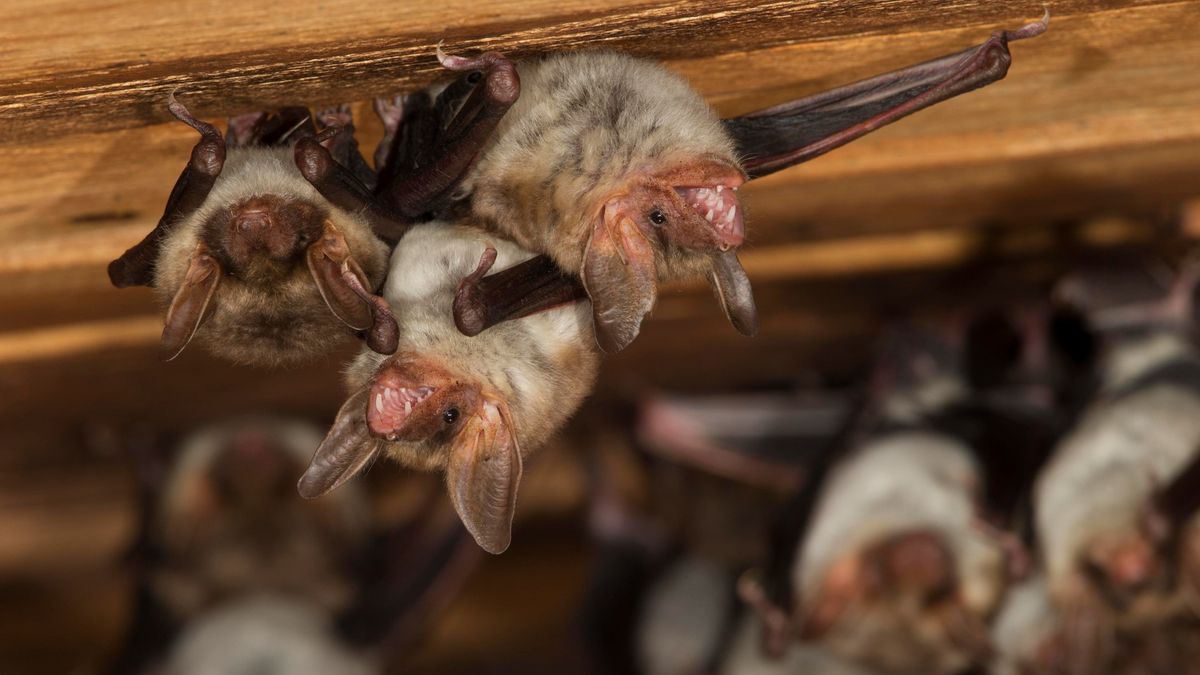Two men in New York state have died of a rare fungal lung infection that they caught from bat poop — specifically, poop they were using or planned to use as fertilizer to grow cannabis.
Both men, based in Rochester, shared a love of “Mary Jane” and cultivated their own cannabis plants for personal use. They each developed a condition called histoplasmosis after breathing in spores of a harmful fungus known as Histoplasma capsulatum from bat poop, or guano.
The first man, who was 59-years-old, had purchased guano online to use as fertilizer for his cannabis plants. The other man, 64, was intending to fertilize his cannabis plants with guano he’d found in his attic following a “heavy” bat infestation.
The men developed an array of symptoms from their infections, including fever, chronic cough, extensive weight loss, blood poisoning and respiratory failure. Despite being hospitalized and treated with antifungal medication, both men died of their illnesses, according to a report of their cases, published Dec. 4 in the journal Open Forum Infectious Diseases.
Related: New cause of asthma lung damage revealed
The doctors who treated them said that their deaths should serve as a warning about the potential dangers of using bat guano as a fertilizer for any plants. This may be a particular issue for cannabis growers.
“Given the recent legalization and an expected increase in home cultivation of cannabis, along with the promotion of bat guano for this purpose, it is important to raise public awareness about the potential risk of using bat guano as fertilizer,” the case report authors wrote. The authors added that they found numerous articles calling bat guano a “natural superfood” for cannabis plants due to its high concentration of nitrogen and phosphorus.
These recent deadly cases also “emphasize the need for protective measures, such as wearing masks when handling it,” the authors added.
Histoplasmosis is a type of pneumonia caused by breathing in spores of H. capsulatum, a fungus found in soil and bird and bat droppings. In the lungs, H. capsulatum spores transform into mature yeast that can spread to other regions of the body via the bloodstream. However, the disease cannot spread between people or between people and their pets.
Each year, around 1 to 2 per 100,000 people in the U.S. are infected with histoplasmosis. Infections mainly occur in the Mississippi and Ohio River valleys, although cases have been reported in 14 states, according to the U.S. Centers for Disease Control and Prevention (CDC).
Only about 1% of people exposed to H. capsulatum develop symptoms. When symptoms do emerge, they usually occur within three to 17 days after exposure, and include fever, chills, muscle aches and chest pain.
People who have had a lung disease prior to being infected and those with weakened immune systems are more likely to develop severe forms of histoplasmosis, which can last for months or longer, and be deadly. Between 5% and 7% of patients hospitalized with histoplasmosis die as a result of their infection.
The men in Rochester had other existing diseases when they caught histoplasmosis, which may have worsened their infections. The first, for instance, had a condition known as emphysema, where the air sacs in the lungs are damaged, which restricts breathing. And both patients had histories of tobacco use, in addition to smoking marijuana.
The authors of the new case report say that commercial fertilizers containing bat guano should be tested for H. capsulatum before being put on the market. If that is not possible, products should be labeled with warning signs and provide instructions on how to use them safely, they said.
To minimize the risk of infection, the CDC additionally recommends that people avoid engaging in activities that may increase their chances of being exposed to H. capsulatum, such as cleaning chicken coops or exploring caves. Large amounts of bird and bat droppings, which may be found in an infested attic, should be removed by professional companies, the agency states.
This article is for informational purposes only and is not meant to offer medical advice.
Ever wonder why some people build muscle more easily than others or why freckles come out in the sun? Send us your questions about how the human body works to community@livescience.com with the subject line “Health Desk Q,” and you may see your question answered on the website!
